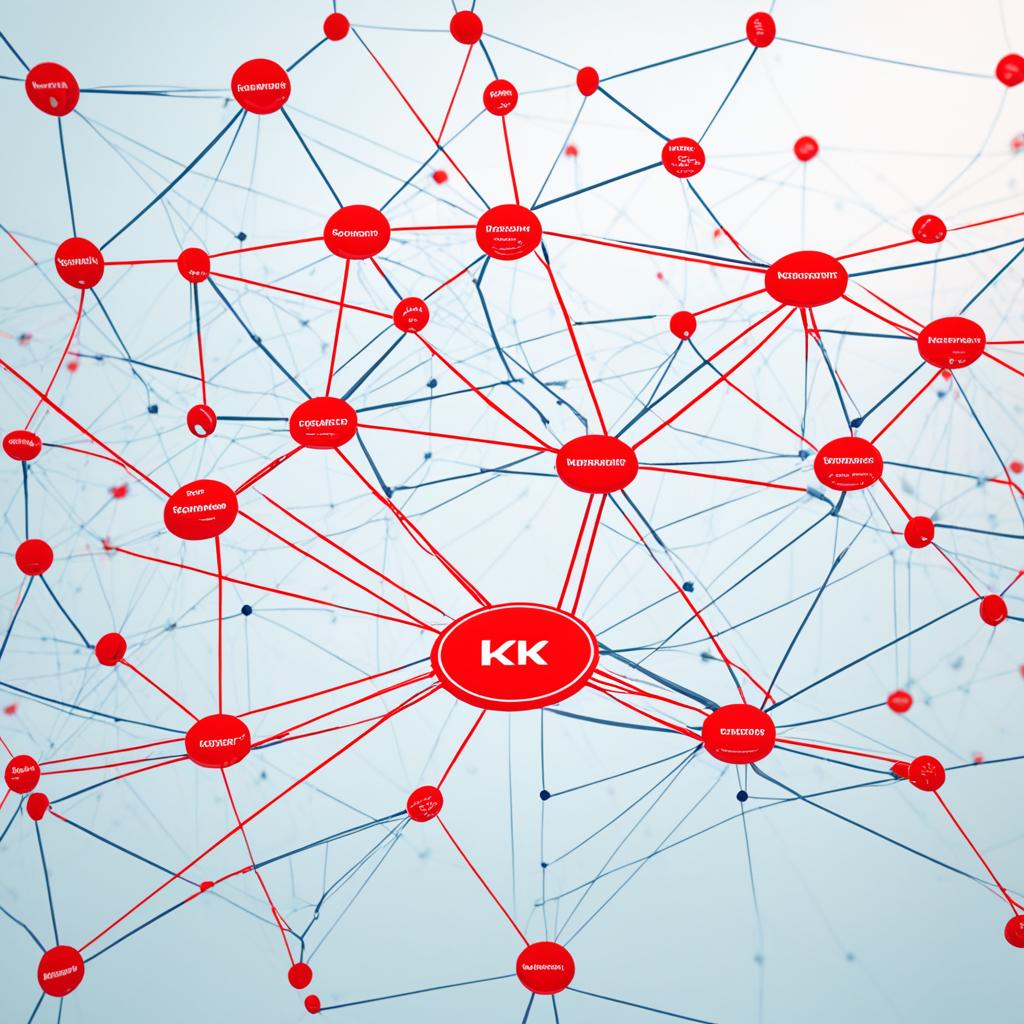AI is revolutionizing the business world. Companies are using AI solutions to improve processes and remain competitive. The AI data protection a major challenge.
The GDPR requires strict handling of personal data. The company must Innovations and at the same time comply with data protection rules. This is crucial for success.
GDPR-Violations can lead to high fines. Particular caution is required when using AI systems. Progress and data protection must be reconciled.
This is the only way companies can fully exploit the potential of AI. At the same time, they avoid legal risks and stay on the safe side.
Important findings
- AI offers The company Great opportunities for process optimization
- GDPR places high demands on data protection for AI applications
- Balance between innovation and data protection is crucial
- Non-compliance with the GDPR can lead to high fines
- The company must design AI systems in compliance with data protection regulations
Introduction to AI and data protection in the corporate context
AI is revolutionizing the business world. It helps companies to improve processes and develop new business models. However, this also poses challenges, particularly in terms of data protection.
Definition and importance of AI for companies
AI comprises systems that imitate human-like intelligence. Machine Learning lets computers learn from data and recognize patterns.
AI offers many advantages for companies. It automates complex tasks and improves decision-making. It also enables a personalized customer approach and increases efficiency.
- Automation of complex tasks
- Improved decision-making
- Personalized customer approach
- Increasing efficiency in production and logistics
Data protection challenges with AI applications
The use of AI harbors considerable Data protection risks. Large amounts of data and complex algorithms make it difficult to comply with data protection rules. Important challenges are:
- Guarantee of the Data minimization
- Ensuring the Earmarking
- Protection of personal data
- Transparency data processing
Overview of relevant laws and regulations
The EU data protection law regulates AI applications in companies. The GDPR plays a central role in this. It lays down important principles for AI systems:
- Lawfulness of data processing
- Transparency and information obligations
- Data security and accountability
Companies must observe these rules for AI solutions. In this way, they minimize legal risks and create trust with customers and partners.
Basics of the GDPR in the context of AI
The GDPR regulates the handling of personal data in the EU. These rules are becoming increasingly important in the age of AI. They have a strong influence on how AI systems are developed and used.
Seven basic principles of the GDPR characterize AI systems. These are: Legalityfairness, Transparency, Earmarking, Data minimizationaccuracy and accountability.
- LegalityAI applications must have a legal basis for data processing.
- Processing in good faith: The use of data by AI should be fair and ethical.
- Transparency: Users must be informed about AI-supported data processing.
- EarmarkingAI may only process data for defined, unambiguous purposes.
- Data minimizationAI systems should only collect and process necessary data.
- Accuracy: The data used by AI must be correct and up-to-date.
- Accountability: companies must be able to demonstrate GDPR compliance for AI applications
These principles pose challenges for companies. Transparency in complex AI algorithms requires new approaches. The purpose limitation of self-learning systems must also be ensured.
AI systems must be designed in such a way that they can GDPR principles from the ground up.
Companies should take certain steps for lawful AI data processing. These include data protection impact assessments for AI projects and clear responsibilities for data protection.
- Data protection impact assessments for AI projects carry out
- Define clear responsibilities for data protection in AI applications
- Carry out regular audits of AI systems with regard to GDPR compliance
Implementing the GDPR in AI systems requires teamwork. Data protection experts, developers and specialist departments must work together. This is the only way to create efficient and data protection-compliant AI solutions.
Data protection when using AI in the company
AI systems pose new data protection challenges. Companies need to know the legal framework. Only then can they compliance-compliant action.
Data protection requirements for AI systems
AI systems must meet strict Data protection requirements fulfill. Companies should regularly review their AI applications.
- Minimize the processing of personal data
- Use data only for specified purposes
- Implement appropriate security measures
- Safeguarding the rights of those affected
Lawfulness of data processing by AI
The lawful Data processing is a fundamental principle of data protection. Special rules apply to AI applications.
- A clear legal basis for data processing
- Obtaining consent, if necessary
- Consideration of legitimate interests
- Examination of the necessity of processing
Companies must Legality constantly check their AI data processing. A precise Documentation is essential.
Transparency and information obligations for AI applications
With AI systems Transparency obligations particularly important. Companies must provide comprehensive information to those affected.
- Informing data subjects about the processing of their data by AI
- Explaining the logic of automated decision-making
- Provide clear and understandable information
- Ensuring the rights of data subjects to information
Transparency creates trust in AI applications. It also strengthens the rights of those affected.
"Transparency is the key to the responsible use of AI in companies."
Legal aspects are the basis for ethical AI systems. Companies should observe these principles. How to use AI in compliance with data protection regulations.
Data protection impact assessment for AI projects
The Data protection impact assessment (DSFA) is an important tool for AI projects. It helps, Data protection risks at an early stage and reduce them. This enables companies to make their AI projects more secure.

- Project description: Detailed description of the AI system and how it works
- Risk analysisIdentification of potential risks to the rights and freedoms of data subjects
- Evaluation: Assessment of the probability of occurrence and severity of the risks
- Action planning: development of strategies to minimize risk
- DocumentationWritten recording of all results and planned measures
The Risk analysis is a core element of the DSFA. It uncovers potential risks associated with the use of AI. These include the handling of sensitive data and potential discrimination.
The transparency of the algorithms also plays an important role. Companies should take a close look at these aspects.
- Thorough analysis of the data flows in the AI system
- Consideration of ethical aspects in the use of AI
- Involvement of experts from various specialist areas
- Regular review and adjustment of the DSFA
A good DPIA helps to meet the GDPR requirements. It builds trust and reduces the risk of data breaches. Companies can thus make their AI projects more secure.
The DPIA is not a one-off procedure, but a continuous process. It must be regularly reviewed and adapted to new developments.
By integrating DPIA at an early stage, companies think about data protection right from the start. This helps them avoid expensive rework. The DPIA is an important step for successful AI projects.
Technical and organizational measures for data protection with AI
AI in companies requires robust measures to protect personal data. These form the foundation for legally compliant handling of AI systems. They create trust and secure sensitive information.
Implementation of privacy by design and privacy by default
Privacy by design integrates data protection in AI systems right from the start. It already takes data protection into account during development and implementation.
Privacy by default ensures data protection-friendly default settings. This protects user data automatically, without additional settings.
- Data minimization: only collect necessary data
- Pseudonymization: reducing personal references
- Transparency: Clear information on data processing
Data security and encryption
Data security is central to data protection in AI applications. Encryption protects data from unauthorized access and manipulation.
- End-to-endEncryption for data transfers
- Encryption stored data
- Regular security audits and updates
Access controls and authorization management
Access controls and authorization management Sensitive data in AI systems. They regulate who can access which data.
- Role-based Access controls
- Two-factor authentication
- Regular review and adjustment of authorizations
Implementation requires cooperation between IT, data protection officers and specialist departments. This is the only way to ensure comprehensive protection in AI systems.
Responsibilities and distribution of roles within the company
A clear allocation of roles is important for the use of AI, taking data protection into account. A well-defined Governance structure forms the foundation for data protection measures in AI applications. It enables the effective implementation of Privacy policy in the company.
The data protection officer plays a key role in AI systems. They advise on data protection issues and monitor compliance with the GDPR. Their tasks are varied and important.
- Advice on the implementation of data protection impact assessments
- Training employees in the handling of personal data
- Monitoring compliance with data protection regulations
AI managers take care of the technical implementation and operation of the AI systems. They work closely with the data protection officer. Together, they ensure that AI applications comply with the Data protection requirements correspond.
A good Governance structure for AI projects is crucial. It should take several important aspects into account.
- Clear responsibilities and decision-making channels
- Regular coordination between specialist departments and IT
- Involvement of the works council in employee-relevant AI applications
- Establishment of an ethics committee for AI issues
Company management is responsible for data protection in AI projects. It must provide sufficient resources for data protection measures. It should also promote a culture of responsible data handling.
A clear allocation of roles and responsibilities is the key to success in the data protection-compliant implementation of AI systems.
A robust Governance structure is crucial for success. It involves all key stakeholders. This enables companies to take advantage of AI opportunities and protect personal data at the same time.
Best practices for data protection in AI applications
When using AI applications, special care must be taken with data protection. Proven methods can help, Legal requirements to fulfill. They also strengthen customer confidence.
Data minimization and purpose limitation
Data minimization is an important data protection principle. AI systems should only process the most necessary data. This reduces risks and increases efficiency.
- Check and filter data before processing
- Regular deletion of data that is no longer required
- Clear definition of the processing purpose
Regular training and sensitization of employees
Employee training are crucial for data protection. Well-informed employees recognize risks at an early stage. They can react appropriately.
- Annual data protection training for all employees
- Special training for AI developers and users
- Regular updates on new data protection regulations
Documentation and verifiability
Thorough Documentation of all data protection-relevant processes is important. It enables proof of GDPR compliance. A regular review is necessary.
- Detailed recording of all data processing operations
- Regular review and updating of documentation
- Clear assignment of responsibilities
These best practices ensure data protection in AI applications. Constant adaptation to new developments is important. Companies must react flexibly to changes.
Handling special categories of personal data in AI systems
AI systems often process Sensitive data such as health and biometric information. The protection of this data requires special attention and strict measures. Companies need to be particularly careful here.

- Health data (e.g. medical records, diagnoses)
- Biometric data (e.g. fingerprints, facial recognition)
- Genetic information
- Data on sexual orientation or ethnic origin
Stricter protective measures apply to this data. AI systems must handle them with particular care. The consent of the data subjects is very important here.
Explicit consent is required for the processing of sensitive data by AI. Companies should communicate openly how they handle this data. The AI ethics plays a central role here.
Companies should ethical guidelines for the respectful handling of sensitive data. Here are some recommendations for protection:
- Encryption of all sensitive data
- Rigor Access controls and authorization management
- Regular training for employees on handling sensitive data
- Use of anonymization and pseudonymization techniques
- Carrying out special risk analyses for sensitive data processing
Responsible handling of sensitive data is legally and ethically important. It offers companies the opportunity to build trust. This allows them to stand out positively from others.
Conclusion
AI in companies offers many opportunities, but also data protection challenges. A balanced approach between AI data protection and Innovations is for the Competitiveness crucial. Companies must proactively develop solutions to Compliance-requirements and fully exploit AI potential.
The future of AI use depends on the compatibility of data protection and technological progress. Constant adaptation to new regulations in the AI data protection is important. In this way, companies can benefit from AI in the long term and protect the rights of data subjects.
Every company must establish a responsible approach to AI. This includes regular training and transparent processes. Data protection should be integrated into all phases of AI development and application.
This balance between innovation and Compliance strengthens the Competitiveness. It also promotes the trust of customers and employees in AI technologies.
